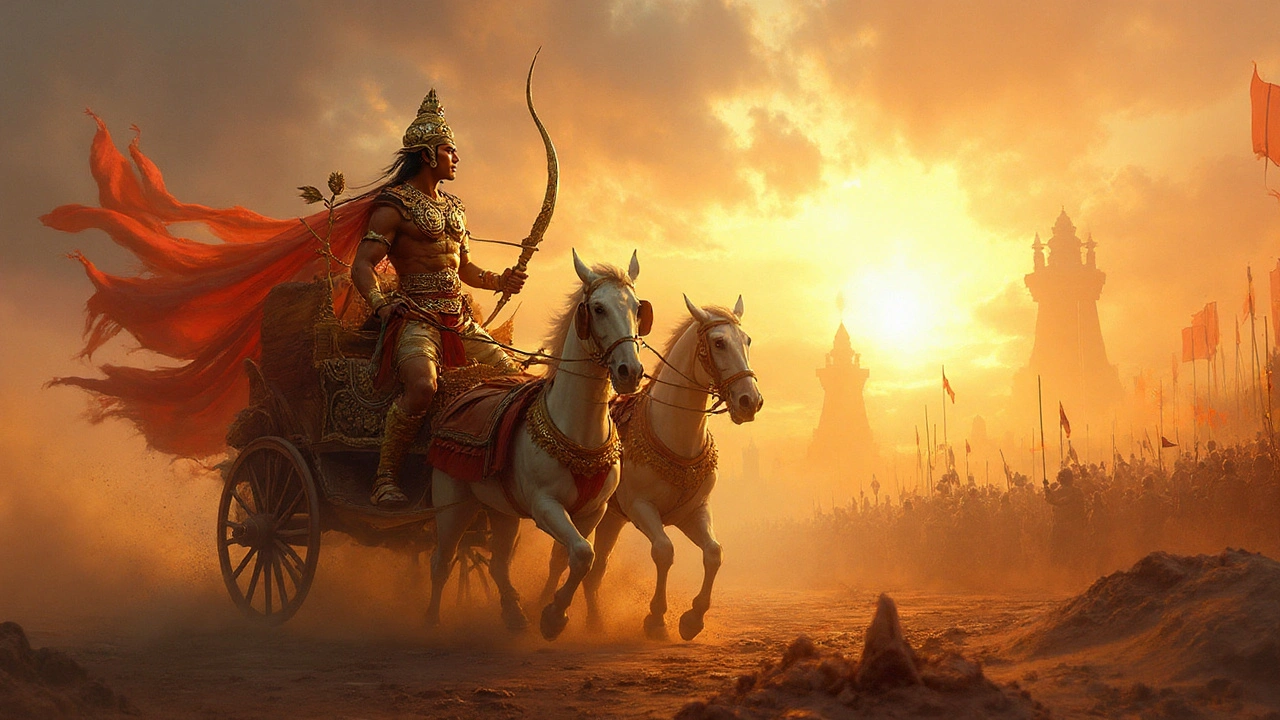
Who Is Arjuna? The Hero Behind the Bhagavad Gita Explained
A clear, engaging look at Arjuna-his origins, epic deeds, philosophical role in the BhagavadGita, and lasting cultural impact.
If you’ve ever wondered why people keep talking about Vishnu, Shiva, or the Ramayana, you’re in the right place. Hindu mythology is a big collection of stories that explain how the world works, why we act certain ways, and what values matter most. Below you’ll find the most useful bits – the major gods, a couple of famous tales, and why these myths still matter today.
First up, the trinity of Brahma, Vishnu, and Shiva. Brahma creates, Vishnu protects, and Shiva transforms. Each god has a set of partners and avatars that add flavor to the myths. For example, Vishnu’s avatar Krishna shows up in the Mahabharata, where he gives the famous Bhagavad‑Gita speech. That talk is basically a cheat‑sheet for handling life’s tough choices.
Next, the goddess side. Durga, Lakshmi, and Saraswati cover power, wealth, and knowledge. Durga’s battle with the buffalo demon Mahishasura is a classic “good beats evil” story, and people still celebrate it every year during Navratri.
Then there are the epic heroes. Rama from the Ramayana is the ideal husband and ruler. His story teaches loyalty, duty, and the importance of keeping promises, even when the road gets rough. On the other hand, the Pandava brothers in the Mahabharata illustrate how family conflict, honor, and destiny mix together.
These stories aren’t just old books; they’re used in daily life. Many festivals, like Diwali and Holi, are tied to mythic events. When you light a lamp on Diwali, you’re remembering Vishnu’s victory over the demon king Bali. That makes the celebration feel deeper than just fireworks.
Modern writers and filmmakers also borrow from these myths. You’ll spot a Krishna‑like character in a Netflix series or a Shiva‑style transformation in a video game. Knowing the original tales helps you catch those references and enjoy the content more.
Finally, the morals in the myths are surprisingly practical. The idea of “dharma” – doing what’s right for yourself and others – shows up in everything from work decisions to family arguments. When you face a tough call, asking yourself what dharma would dictate can give you a clear direction.
So, whether you’re reading the Ramayana for the first time or just hearing the names of gods at a cultural event, you now have the basics to follow along. Keep these key points in mind, and you’ll find Hindu mythology more than a collection of ancient tales – it’s a living guide that still speaks to us today.

A clear, engaging look at Arjuna-his origins, epic deeds, philosophical role in the BhagavadGita, and lasting cultural impact.